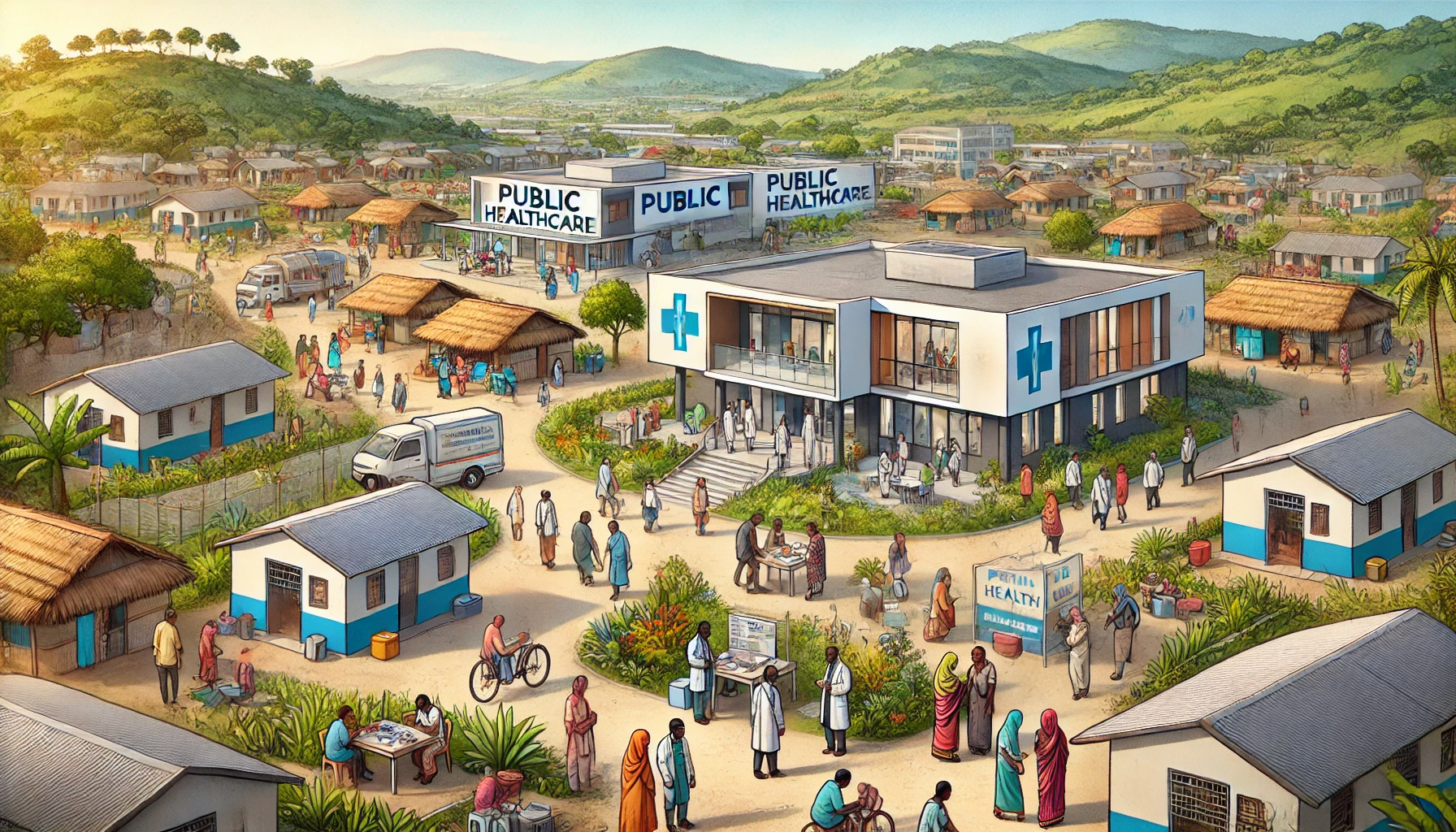WHO Report Calls for Urgent Action on Financial Protection to Ensure Health Access for All
WHO 2024 Global Health Expenditure Report Highlights Decline in Government Health Spending and Urges Stronger Financial Protection for Universal Health Coverage.

The World Health Organization (WHO) released its 2024 Global Health Expenditure Report today, revealing that government spending on health across all income groups declined in 2022 following a surge during the early years of the pandemic. The report, titled "Global Spending on Health: Emerging from the Pandemic," coincides with the observance of Universal Health Coverage (UHC) Day on December 12, 2024, focusing on improving financial protection for individuals to access essential health services without financial hardship.
WHO Director-General Dr. Tedros Adhanom Ghebreyesus emphasized that while access to health services has improved globally, many individuals continue to face financial hardship due to high out-of-pocket health costs. "Universal Health Coverage Day is a reminder that health for all means everyone can access the health services they need, without financial hardship," said Dr. Ghebreyesus.
The report underscores the crucial role of government spending in achieving UHC and warns that deprioritizing public health funding could worsen existing health inequalities. Currently, over 4.5 billion people lack access to essential health services, and 2 billion individuals face financial distress due to health-related expenses. For UHC to become a reality, financial protection is essential to prevent impoverishment and ensure that individuals can receive necessary care without the risk of falling into poverty.
The Role of Out-of-Pocket Payments
The report highlights that out-of-pocket payments remain the primary source of health financing in 30 low- and lower-middle-income countries. In over 20 of these countries, more than half of total health spending is covered directly by patients, exacerbating the cycle of poverty. Even in high-income nations, out-of-pocket costs lead to financial hardship, particularly among the poorest households. In some high-income countries, more than 20% of total health spending is paid directly by individuals.
To address this, WHO calls on governments to prioritize UHC, with a goal of eliminating impoverishment due to health costs by 2030. Effective strategies include reducing or eliminating user charges for vulnerable populations, adopting protective legislation, and establishing public funding mechanisms to provide comprehensive health coverage for all citizens.
Lessons from the COVID-19 Pandemic
The COVID-19 pandemic illustrated the critical importance of government health budgets in responding to health emergencies. During the crisis, increased public spending allowed for swift action, protecting populations and saving lives. The pandemic demonstrated the advantages of public financing over other health financing mechanisms during times of crisis, particularly for large-scale public health interventions.
As countries move beyond the pandemic, they face difficult decisions on balancing the strengthening of health systems against future threats with addressing current healthcare needs in an economically challenging environment.
WHO’s Health Expenditure Tracking and the Path Forward
WHO’s Health Expenditure Tracking program has played a pivotal role in shaping global health financing policies over the past 25 years. It has contributed to the creation of the Global Health Expenditure Database, which provides valuable insights into health spending patterns in over 190 countries. These data drive transparency, accountability, and informed policymaking at both national and global levels.
Advancing UHC and Health Security through Partnerships
UHC Day also serves as a platform for the WHO to reflect on its efforts to collaborate with countries to reshape health systems and promote UHC and health security. From December 11-13, 2024, WHO convened representatives from more than 125 countries in Lyon, France, to review progress, discuss challenges, and define priority areas for the next phase of the UHC Partnership (2025-2027).
The UHC Partnership is WHO’s flagship initiative for international cooperation on UHC, supported by a diverse range of partners including the European Union, Canada, Germany, Japan, and the United Kingdom. The initiative aims to advance tangible actions and ensure that UHC remains a global priority for the coming years.
Call for Action
The WHO's report serves as a stark reminder of the need for concerted global efforts to protect populations from the financial burden of health costs. Governments must prioritize UHC and invest in financial protection mechanisms that reduce out-of-pocket expenditures and increase public health spending. Only by doing so can we ensure that no one is left behind and that health services are accessible to all, regardless of income.










